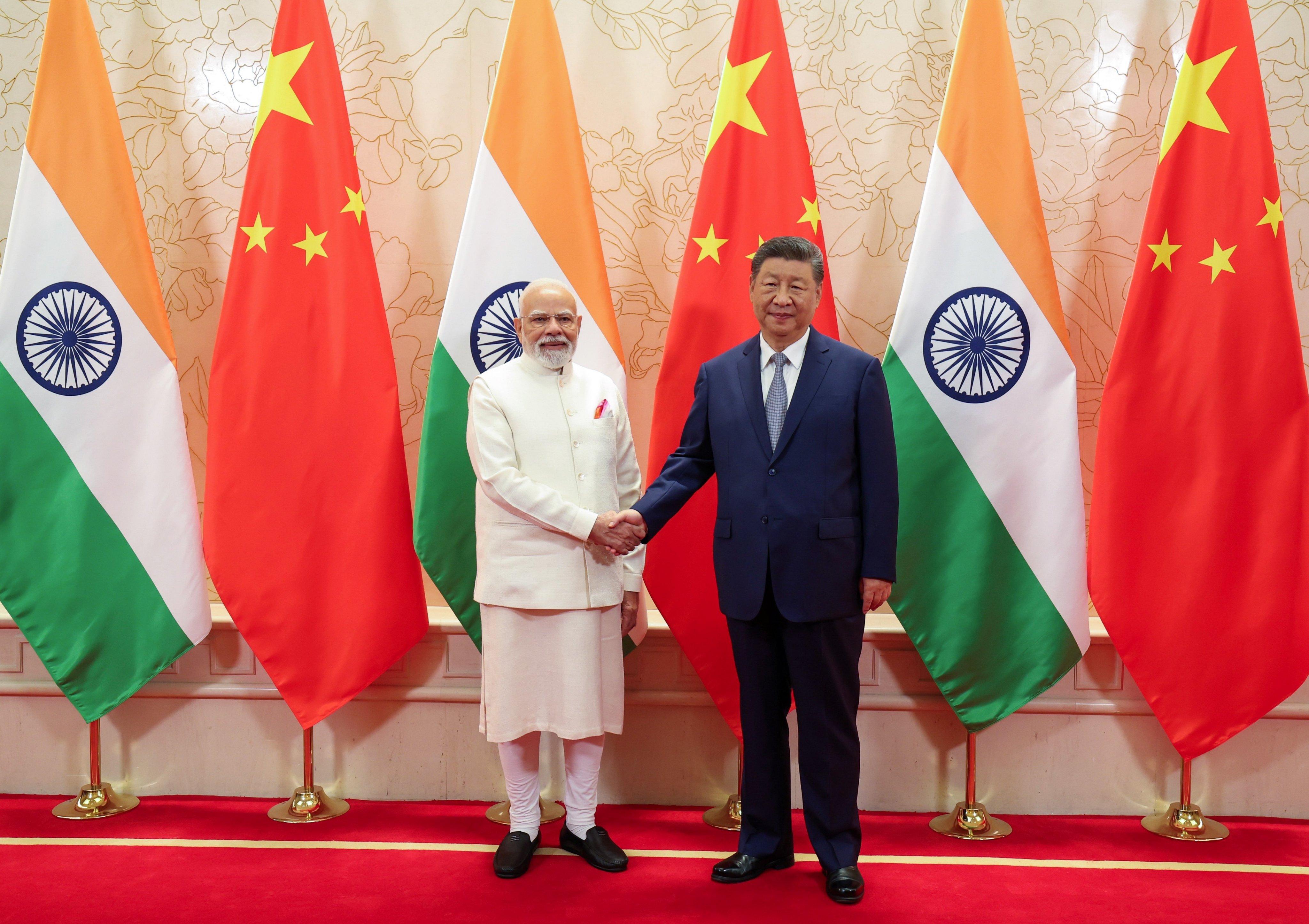
Tianjin, China, August 31, 2025 – The 25th Shanghai Cooperation Organization (SCO) Summit opened today in Tianjin, bringing together leaders from across Eurasia at a time of heightened geopolitical tensions and economic uncertainty. The summit, which runs through September 1, is being seen as a test for multilateralism in an increasingly polarized world.
This year’s meeting is particularly significant for the high-profile bilateral talks between Indian Prime Minister Narendra Modi and Chinese President Xi Jinping, their first face-to-face interaction in more than seven years. The leaders’ encounter on the sidelines of the summit has already become the central talking point, as both countries attempt to stabilize ties following years of strained relations.
India-China Thaw in Tianjin
According to Reuters, Prime Minister Modi conveyed India’s commitment to improving relations with China, emphasizing the need for a peaceful and stable border environment to allow both countries to focus on development. Xi Jinping echoed the sentiment, stating that border disputes should not overshadow the broader relationship between the two Asian giants (Reuters, Aug 31, 2025).
Hindustan Times reported that the talks covered several practical steps, including the resumption of the Kailash Mansarovar Yatra for Indian pilgrims, direct flight connectivity, and strengthening economic engagement. Modi also congratulated China on its successful SCO chairmanship and stressed that improved border management and cooperation could benefit millions on both sides. The dialogue was described as cordial, underscoring an intent to rebuild mutual trust after the 2020 border clashes.
India TV highlighted that Modi’s visit comes at a delicate time for New Delhi, which is facing fresh tariff-related tensions with the United States. Against this backdrop, the meeting with Xi is viewed as a strategic recalibration by India to ensure balanced relations with both major powers.
Putin’s Arrival and Russia’s Role
Russian President Vladimir Putin’s participation also adds weight to the summit. As reported by Reuters and AP, Putin arrived in Tianjin on a rare four-day visit, receiving a red-carpet welcome. His agenda includes deepening security and energy ties with China while showcasing unity against Western sanctions.
In a joint appearance with Xi Jinping, the two leaders reaffirmed their shared opposition to what they termed “discriminatory trade practices” by the West. Putin also used the platform to emphasize the SCO’s importance as a counterweight to U.S.-led alliances. Analysts note that with Russia increasingly isolated by sanctions, Moscow is leaning more heavily on China and regional groupings like the SCO for diplomatic support and economic survival.
Regional Participation and Global South Agenda
Beyond the India-China-Russia triangle, this year’s SCO Summit has drawn leaders from nearly 20 nations, including Iran, Turkey, Pakistan, and Central Asian republics. The Times of India noted that the summit has become the largest gathering in SCO history, reflecting China’s growing diplomatic ambitions.
CGTN, China’s state broadcaster, underscored Beijing’s goal of using the SCO to promote a multipolar world order, amplifying the voice of the Global South. The summit agenda includes regional security, counterterrorism, and digital and energy cooperation. It also aims to expand trade connectivity across Eurasia, with emphasis on projects tied to China’s Belt and Road Initiative.
India’s Balancing Act
For India, participation in the SCO continues to be a delicate balancing act. On one hand, the grouping allows New Delhi to engage with Russia, China, and Central Asian partners on regional stability and economic issues. On the other, India has reservations about the SCO’s tilt towards Pakistan and China-led initiatives. Reports from AP suggest that India may once again avoid signing certain joint statements that could be perceived as aligning with pro-Pakistan narratives.
Still, Modi’s presence at the Tianjin summit highlights India’s recognition that regional forums cannot be ignored, especially when they involve key energy and trade partners. The timing of the summit—just weeks after Washington announced fresh tariffs on Indian exports—makes India’s strategic outreach even more significant.
Looking Ahead
As the Tianjin summit continues, all eyes remain on whether the Modi-Xi engagement produces concrete follow-up measures or remains largely symbolic. The SCO itself faces questions about its effectiveness beyond rhetoric, but its growing membership and expanded agenda underscore its role as a platform for countries seeking alternatives to U.S.-dominated institutions.
The 2025 SCO Summit reflects the shifting tectonics of global politics: India seeking balance between Washington and Beijing, Russia doubling down on its Asian alliances, and China presenting itself as a champion of multilateralism. Whether these dynamics will result in durable cooperation or further fragmentation of the global order remains to be seen.
Transparency Note: This article is based on reporting from Hindustan Times, India TV, CGTN, Reuters, AP, and Times of India, as well as additional details from web sources and social media commentary (X posts). Specific post numbers have been avoided for transparency and neutrality.




